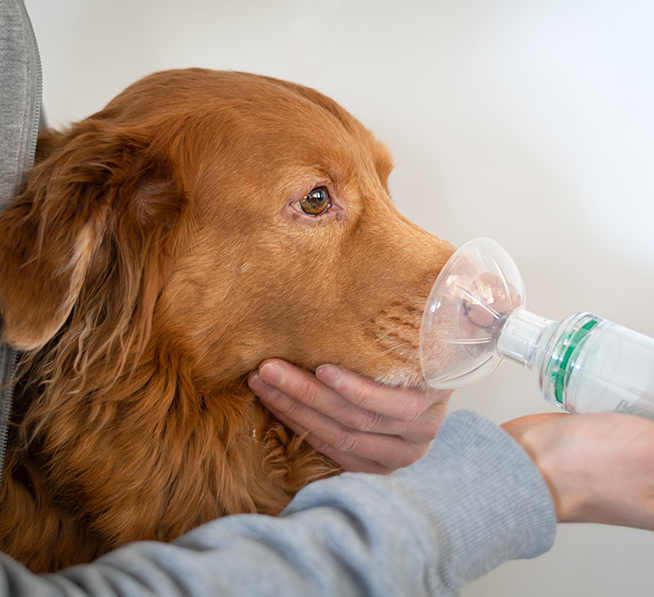
What You Should Know About Asthma in Pets
Many pet owners do not realize that their pets could suffer from asthma and allergies – just like people can. May is Asthma Awareness Month, and at Companion Animal Health & Rehabilitation Center, we like to take the opportunity to raise awareness by talking with pet owners about asthma in pets.
What Is Asthma in Pets?
Asthma is characterized by the inflammation of the tissues inside a pet’s airways that results in constricted breathing. Signs and symptoms of asthma in pets include wheezing, coughing, poor appetite, weakness or lethargy, and pale gums.


What Causes Asthma in Pets?
Asthma in pets is most commonly caused by allergies. While pets can have allergies to several different things, including foods or flea saliva, asthma is typically caused by allergies that enter the body through the respiratory system. These are called environmental allergens and include things like dust, pollen, mold, mites, dander, smoke, perfume or fragrances, and household chemicals.
When these allergens are breathed in and enter a pet’s respiratory system, the pet’s immune system mistakenly recognizes them as harmful substances (like a virus or bacterium) and attacks. This strong immune response is what causes the inflammation associated with asthma.
How to Treat Asthma in Pets?
Asthma in pets can be treated in a variety of ways. Our veterinarians might recommend taking steps to minimize the allergens your pet is exposed to with regular grooming to keep their coat clean, regular changing of HVAC filters, and the addition of air purifiers to your home.
We might also prescribe medications such as steroids to mitigate the immune response, antihistamines to control the inflammation, allergy shots to retrain your pet’s immune system, or even a nebulizer to deliver medications in an aerosol form directly to your pet’s lungs.


Asthma and Allergy Care for Pets in Escondido
If your pet suffers from allergies and has asthma, too, it’s incredibly important to start working with a veterinarian to manage your pet’s condition. Left untreated and unaddressed, asthma can be dangerous and even fatal in pets. At Companion Animal Health & Rehabilitation Center, our veterinarians have a variety of resources to diagnose your pet’s allergies and provide them with treatment to address and mitigate asthma symptoms at the source.
To learn more about asthma and allergies in pets or to schedule an appointment for your dog or cat, we welcome you to contact our veterinary center in Escondido today.














